Category: Kids
ContentRally is a leading source of reliable news and trending topics on Kids. Get hard-to-find insights and advice on Kids from industry-specific leaders.
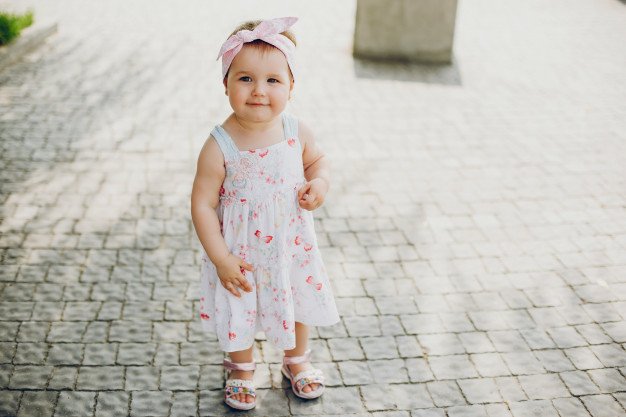
Dressing Up Your Babies: How Hard Is It?
Choosing what clothes to wear every day can be one of the trickiest things to do. The idea of matching clothes that depends on which occasion you’re going can be exhausting and tiring. Some people enjoy this, but most of us don’t. What’s funny is that we can’t escape this chore for the rest of our lives. As a parent, you are now in control to determine what is the good or bad fashion for your baby. And admittedly, this is still not easy. Lucky you, here are a few tips on what to keep in mind when choosing clothes for your babies Winter, Spring, Summer Or Fall It is important to choose what clothes best fit your children; however, it is far more important to prioritize your children’s welfare by identifying the season and temperature in your area. Toddlers or children aged 0-3 years old tend to be easily sensitive when it comes to the clothes they’re wearing. Therefore, having research on what can easily irritate their skin, especially on this continuous climate change, must be one of the things you should know first before choosing their fashion for the day. Make Sure It’s Comfy and Easy to Dress and Undress Children can be easily irritated at any time of the day. Once this happens, you’ve got to make sure that you’ve got it all covered. Putting clothes that can be easily undressed like pants, t-shirts, or shorts must be one of your options in choosing your children’s clothes. You may also teach your children to decide what clothes to wear. In this way, they will have the authority to choose what they want and what clothes they are comfortable to wear. Choosing What Type of Cloth or Fabric You’re Going to Get Trending fashions for babies are important but choose it carefully. Since many stores offer baby clothes, it is a general rule to look for items that don’t have too many details on it. Though it can be considered cute, not all clothes are acceptable to children. Know What Occasion In order to showcase your children’s style in fashion, you have to first find out what occasion or theme your baby is going to attend. Whether it’s for Christening, birthdays, holidays, etc. finding clothes that are a match to the occasion is a must. Interestingly, an online baby boutique named BK (Baby’s and Kids Boutique) offers this wide variety of baby clothes prioritizing your baby’s safety while having an Instagrammable fashionista baby. With their newest set of baby wears like christening gowns Canada, your children will be the center of the crowd every holiday. And as for christening gowns, Canada, Baby and Kids’ Boutique should be your choice of store. Make It Simple The last tip for mommies and daddies is that simplicity is beauty. Children, particularly babies, are already cute. Though it’s fun to mix and match outfits, having them put too extra clothes on their bodies can already be unpleasing—not just for other people but for the children themselves. Put clothes that are lightweight, easy to wear, and simple. Read Also: Why Baby Formula Should Be A Consideration For All Parents How To Choose The Best Toys For Your Baby
READ MOREDetails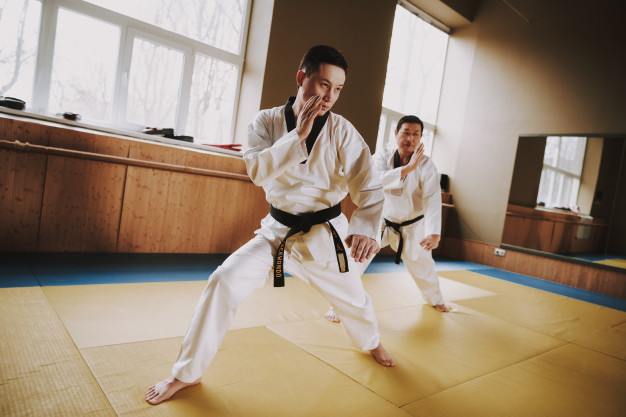
Benefits of Martial Arts for Kids In Modern World
Let’s face it: we now live in an age when tablets, smartphones, and other gadgets dominate children’s daily lives. It’s a surefire distraction, considering how these technological marvels carry apps and/or programs specifically designed to pass time, alleviate boredom, and entertain us But It's also important to learn Martial Arts. Almost gone are the days when our children’s summers feature chopping wooden boards in Karate classes, like today, their eyes – and fingers – are mostly glued to different mobile devices. We always condition ourselves that it’s never too late to change for the better; part of this mantra is to occasionally veer our eyes away from technology and experience the real world through real activities. Yes, it’s sometimes hard to watch our young ones engage in physical endeavors like martial arts – with all the jumping spinning kicks, painful joint locks, and hard throws. It’s even harder seeing them spar with kids seemingly twice their size. Now if we can look past these obvious, unavoidable risks, we, as parents, can open our eyes to the true benefits of martial arts to our youngsters. With that, here are some of the reasons to encourage kids into an active lifestyle. Benefits of Martial Arts for Kids Promotes Self-Discipline: Martial arts won’t transform your child overnight into a walking weapon or any of the fictional characters we see on-screen. However, it’s a sure-fire way to teach them the value of self-discipline. It’s become quite the norm that kids these days are so used to getting what they want – somewhat taking the easier route towards instant gratification. By training in martial arts, they’ll be more exposed to the physical and mental challenges of learning how to deal with delayed gratification. This, in more ways, can also permeate to other areas of life, as well. Encourages a Healthy Lifestyle: What better time to introduce young ones to the apparent joy that is sweating it out in the gym and learning a specific discipline than through martial arts. Aside from acquiring useful life skills, children can develop a one-of-a-kind love for a healthier lifestyle at an early age. This may be way too shallow to be a reason to get children into martial arts, but most of us know how aesthetically important it is for the younger generation to be fit and healthy, especially with how common a sedentary lifestyle is today. In all seriousness, though, being physically active not only makes them look good, they’ll also feel good from within with all the endorphins flowing through their veins. Basically, martial arts can put them in an overall better position – mentally and physically – for years to come. Read more: Easy Ways To Live A Healthier Lifestyle Fosters Camaraderie: To the naked eye, any form of martial arts is an individual venture wherein an athlete tests his or her mettle against an opponent, mano y mano. However, what we don’t see are the people behind the artist who train, condition, and, of course, bond with them. Martial arts – or any type of sport for that matter – offers a great avenue to form friendships, which in turn cultivates teamwork. This is beneficial for kids, especially at a young age, as they get exposed to the dynamics of working with different types of individuals with various personalities. This, as stated earlier, can translate outside the four corners of the gym and into the real world when they grow up. Builds Coordination: With the repetitive movements during martial arts training, a child's muscle memory will begin to develop well. It will develop to the point that these become somewhat second nature. As their fundamentals improve through continuous practice, motor skills such as hand and foot placement develop with laser-like precision. Improved coordination helps their reaction time, whether inside the gym or almost in every facet of their daily lives. In addition, a well-coordinated body exudes confidence, as well as diminishes the risks of injuries. Through constant repetition, children also develop vital training facets such as spatial awareness, distance judgment, and quick acceleration. In Conclusion: Encouraging children to be involved in physical activities at an early age carries with it ample benefits. When we say this, it doesn’t mean we eliminate or discourage the aforementioned digital sources of happiness and satisfaction. Indeed, everything boils down to priorities. So, whether your kid goes to Karate or Taekwondo classes, or rolls with the big boys in Brazilian Jiu-Jitsu, or maybe even hit pads during Muay Thai sessions, it’s absolutely important for parents to inspire them to take the necessary steps toward a well-balanced lifestyle. Come to think of it, it shouldn’t be that hard convincing them to take up any form of martial art. After all, being even just a vestige of the shadow of their favorite high-flying, quick-kicking, fast-punching fictional character isn’t that bad. Read Also: 10 Healthy Habits To Improve Your Health How Martial Art Can Help You Stay Fit And Healthy
READ MOREDetails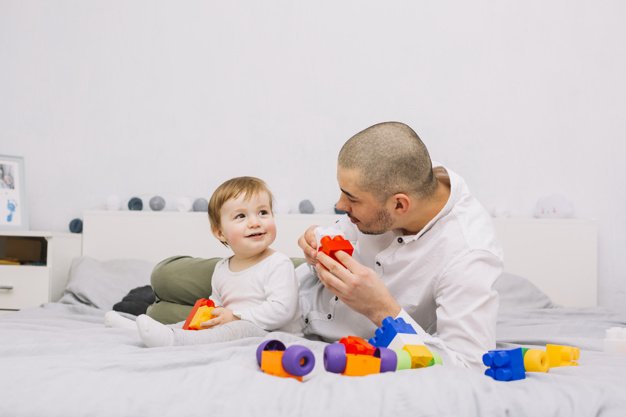
How to Choose the Best Toys For Your Baby
It’s hard to figure out what toys your baby will like, especially since they can’t talk to you. Every baby is different, and since babies grow very fast, it’s hard to tell what they’ll like from one day to the next. Choosing a baby toy doesn’t have to be complicated. But there are some things that you should consider when picking them out while keeping their own safety and fun in mind. For example, some baby toys are safer than others when it comes to the materials they’re made from and the ways that they help with sensory development. All you have to do is make sure you stick to the right requirements and expectations, and you’ll find the perfect addition to your little one’s playroom. Here are our recommendations. Avoid Health Risks, Such as Toxins and Plastic Chemicals: As a parent, your number one priority is keeping your baby safe. Be on the lookout for BPA-free plastics, and avoid anything that may contain harmful plastic chemicals. These toys can cause health issues in your child that you may never realize until it’s too late. Stick to toys that are labeled non-toxic, including the paint and types of plastic. Be on the Lookout For Safety Hazards: Most baby toys are designed to be safe for your little one, but you can never be too cautious. Chances are this toy, among almost anything else your baby comes into contact with, is going right in the little one’s mouth. Make sure you inspect your toys before buying them to be certain there are no hazardous parts. Even the most minuscule things could end up with an unwanted doctor’s visit. Find Something Durable: Toys can take a beating over their lifetime. They get chewed, slobbered on, lost, washed over and over, wrestled with, and more. Choose high-quality toys that are built to be as durable as possible. This may cost you a little more upfront, but in the long run, these toys will last twice as long. If you don’t have to replace them as often, the extra money is well worth it. Choose Wooden Toys: Wood baby toys fit a lot of the boxes on this list. They are great because wood contains natural antibacterial properties, which means that fewer germs will make it to your baby’s mouth and you won’t have to worry about the potential dangers of toxic plastics. Additionally, wood is incredibly durable and you’d be surprised at how much damage one of these toys can take compared to the typical plastic stuff. Focus on Stimulation and Development: There are plenty of great toys out there that are beneficial for your baby’s growth and development. During the first year of your baby’s life, they will go through a variety of different growth stages and learning phases, from developing motor control to creativity. Choose a variety of toys in different textures, colors, and shapes. This will help introduce your child to new sensory experiences that can help them adjust to new aspects of the world. Know Your Child: Ultimately, you know your child better than anyone. So, when you’re looking for new toys, consider your own little one and where they are in their own development. Not every child develops at the same rate, so your baby isn’t always necessarily at the stage that a toy might indicate. Don’t pay as much attention to the age requirements of the toy as you do to your child’s own needs and unique development. This will help you find toys that are appropriate for whatever stage they’re at in their life. Read Also: How To Store Your Lego How To Set Up Your Baby’s Room Care Free Fun: 5 Fun And Family-Friendly Activities For Children With Special Needs
READ MOREDetails
7 Secrets To Make Your Baby Fall Asleep Faster
No two babies are born with the same sleeping habits. While most parents have their work cut out for them when it comes to getting their baby to fall asleep, there are a few tips and tricks that are proven to be effective in helping baby to fall asleep faster. The following seven strategies will help your newborn fall asleep quickly: 1. Start Swaddling: One of the age-old techniques for getting a baby to fall asleep quickly is using a swaddle. Swaddling essentially wraps the newborn in a tight blanket that is wrapped in a specific way around their body. This method is a response to a baby's natural inclination to give into their startle reflex. This startle reflex causes babies to jerk awake when they are startled by a loud noise, motion, or something they see. With swaddling, parents are able to comfort their newborn and prevent them from waking themselves up. The swaddling allows the baby to feel comfortable and protected, reminding them of the comfort they experienced in the womb. Babies generally benefit from swaddling up until the age of five months, when they will likely outgrow the startle reflex. 2. Practice Dream feeding: Dream Feeding is the name for the last meal given to a child right before moms and dads go to bed. This dream feeding is designed to keep babies from waking up right after their parents have finally fallen asleep. While parents typically go on to alter their child's feeding schedule to eliminate this pre-bedtime meal, this dream feeding should be quite effective up until the baby is around four-months-old. 3. Limit Baby's Naptime: Nap Times is an essential part of a newborn's life. Newborns spend a majority of their days and nights sleeping, so it's important for them to get all their rest in when they do fall asleep. However, parents that are hoping to get their children to fall asleep at night need to pay careful attention to their child's nap tendencies. By shortening the duration of their baby's midday naps, parents have a better guarantee that their child will be able to fall asleep when the time is right. Napping babies should sleep up to 2 or 2.5 hours before their parents wake them up. After the 2.5 hour mark, parents should wake the baby, feed them, and then put them down to sleep for a bit longer if needed. 4. Play White Noise: Many adults use white noise to fall asleep, so why shouldn't babies? Since babies tend to wake up at the drop of a hat, the white noise helps to drown out any disturbing sounds that would otherwise keep baby awake. Whether you purchase a white noise machine or turn a fan on in the nursery, these calming sounds are another excellent way to keep baby asleep. When trying to get baby to fall asleep, it's important to make sure their nursery is conducive to the relaxing environment needed to keep them from waking up mid-sleep. In addition to playing calming white noise, it's also necessary to keep the room dark and the proper temperature (experts recommend between 68–72°F), so that the baby will sleep soundly. 5. Follow a Proper Sleep Cycle: For many parents that are new to babyhood, getting a child to sleep can seem like a free-for-all. Parents nap when they can and celebrate whenever their baby does fall asleep. However, this type of freeform sleeping schedule can only last so long. Parents hoping to make sense of their baby's sleeping habits should stick to a proper sleep schedule. A proper sleep cycle for a baby includes waking, sleeping, eating, and then sleeping again. This typical cycle encourages parents to give the baby full feeding as the baby eats after waking up. With this cycle, the baby has the most energy after waking up, which leads them to take another full feeding which allows baby to go longer without another feeding in between this cycle. Additionally, feeding baby after they wake up from sleeping instead of before sleeping prevents them from associating eating with falling asleep or seeing food as their sleep prop. With this cycle, a feeding before they go to bed is typically the only feeding before they fall asleep. 6. Use Bedtime Routines: Part of shaping a baby's sleeping habits and encouraging them to fall asleep quickly involves creating a routine around sleeping. Babies love structure, predictability, and consistency. By creating routines for baby, parents will be able to give their newborn the order they long for. Parents will likely have to explore to find the right pre-nap routine. A successful routine may include closing the curtains and blinds, placing baby in their wearable blanket or sleep sack, turning on white noise, singing a song, providing them with cuddles, saying "I love", and leaving the room. After this routine is performed on a regular basis, babies will start to associate getting sleepy and falling asleep with their routine, allowing them to fall asleep faster. 7. Change Baby's Diaper Strategically: While new parents are just getting the hang of when to change their child's diaper, finding a way to change them strategically will help the baby fall asleep faster. For example, changing a diaper before a midnight feeding will help to prevent the baby from waking up once their feeding is finished. Once the baby wakes up, parents should change their diaper and swaddle them again immediately after the night feeding. This method is preferable to a diaper change after a night feeding, as a baby might be awakened more by a post-feeding diaper change. Babies are naturally inclined to wake up at night. While parents can't avoid this midnight phenomenon for the first few weeks or months after their baby is born, over time, parents can establish a working routine that will help their baby stick to a consistent sleep schedule. keep these seven tips in mind as you work to help your child fall asleep faster. Read Also: 8 Newborn Baby Care Tips For First-Time Parents 3 Health Advantages Of Good Night’s Sleep
READ MOREDetails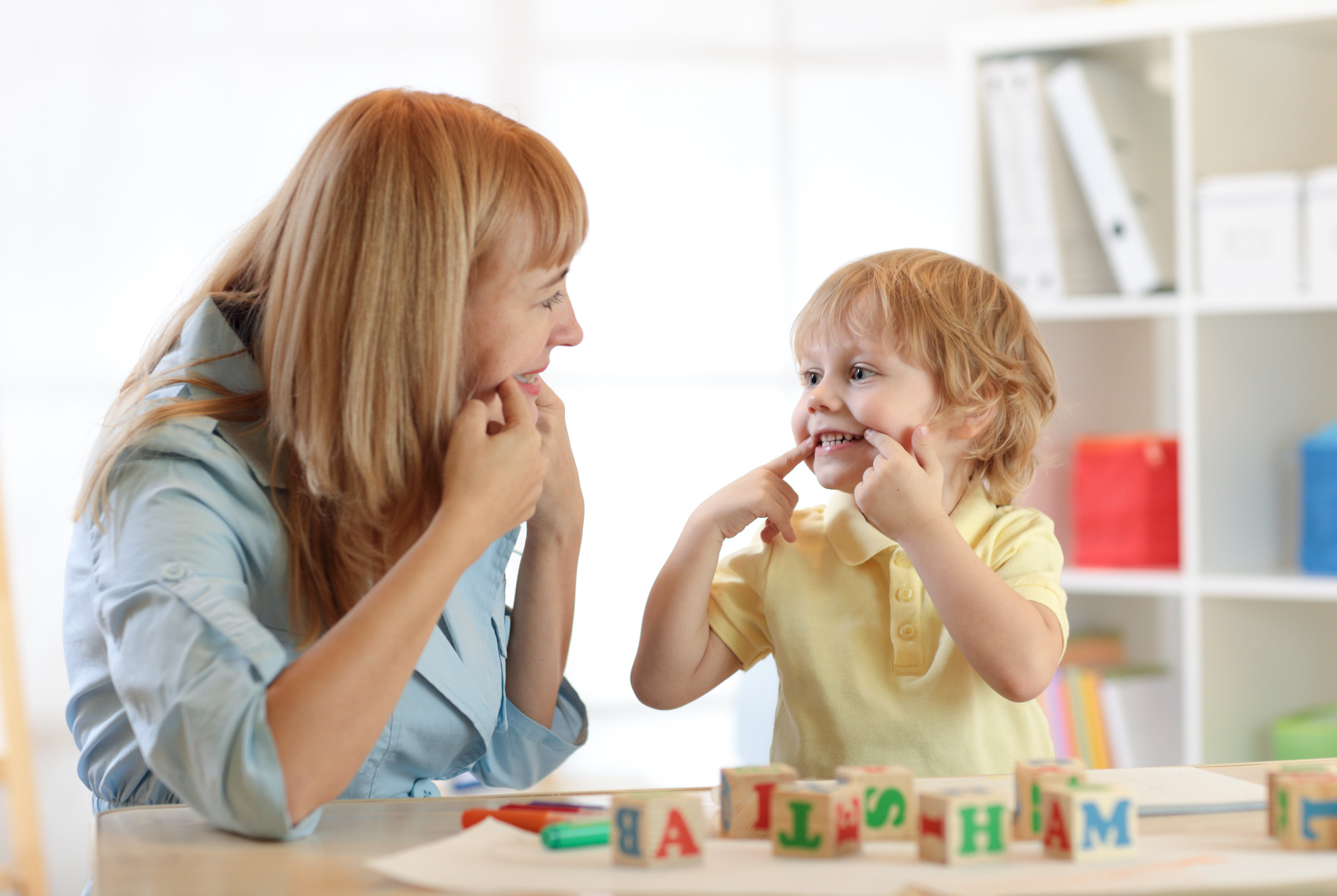
Language and Speech Disorders in Children: How Speech Therapists Can Help
Having a speech disorder can impact a child's life in many ways. Speech and language disorders can affect a child's social development and relationships. It can impact their self-confidence and emotional well-being and their ability to learn. Luckily, early intervention methods are available to help children with speech problems. Speech therapists help struggling children to reach their full potential. With the help of a professional therapist, speech often improves. Speech therapy can even help children to overcome speech deficiencies completely. At Better Speech you can get a free consultation to get your questions answered about the language development of your child and to address any possible speech disorders early on. Speech & Language Disorders in Children: Speech and language disorders in children are not uncommon. According to the National Institutes of Health, one in 12 children in the U.S. has had a speech, language, or swallowing disorder over the past 12 months. Many parents that identify their children to be specially-abled often seek the assistance of special needs school singapore to help them with speech and language disorders. If you're a parent of a child with a speech disorder, you may feel helpless. Speech disorders in children can be frustrating for the whole family. But, there is help available. How Can Speech Therapists Help Children with Speech & Language Disorders? Research has shown that speech therapy is an effective treatment for speech disorders. It's most helpful when continued for six months or longer. Today, there are many treatment options for children with speech and language disorders. Often, school systems have speech therapists to work with their students. Parents can also access online therapeutic resources, such as those offered by Global Teletherapy. Also, most professional therapists accept health insurance plans to cover their services. Here are some of the ways that speech therapists can help your child. Fluency: Stammering or stuttering is the most common fluency disorder. Children who suffer from stuttering may experience embarrassment due to their disorder. Others may even ridicule them because of their fluency issues. Speech therapists can help children learn strategies to cope with their disorder. They can help your child deal with emotional consequences, and deal with unpleasant reactions from others. They can also help your child learn how to control the flow of their words. This helps make their disorder less noticeable. Sometimes, it's possible for therapists to help children overcome fluency disorders. Voice Disorders: When a child has a voice disorder, their speech may be difficult for others to comprehend. Often, the child will start mumbling after they begin speaking. A speech therapist can help children learn to practice awareness of their speaking habits. They will help your child learn to complete sentences clearly. And, they can help make the connection between one's thoughts and their spoken words. Better yet, speech therapists know special activities to help children with special needs. They're also aware of current learning trends for these children. And, they understand that it's important to make learning fun for your child. Articulation: Many children have difficulty pronouncing words. Some even have issues with words that are familiar, or that they commonly use in conversation. Articulation difficulties can lead to many social and emotional issues if not addressed. Speech therapists can teach children strategies to discern and correctly pronounce sounds. This helps children gain confidence. It also helps them to feel comfortable speaking to others in social circumstances. Want More Tips for Helping a Child with Special Needs? Speech therapists can be life-changing in the lives of children with special needs. Like all children, those with special needs desire acceptance and understanding from others. Want more tips for parenting a child with special needs? Check out this post for more tips to help you support friends and family members with special needs! Read Also: Style Your Child: How To Find Comfy And Cute Clothing For Kids How To Select The Best Investment Plan For Your Child?
READ MOREDetails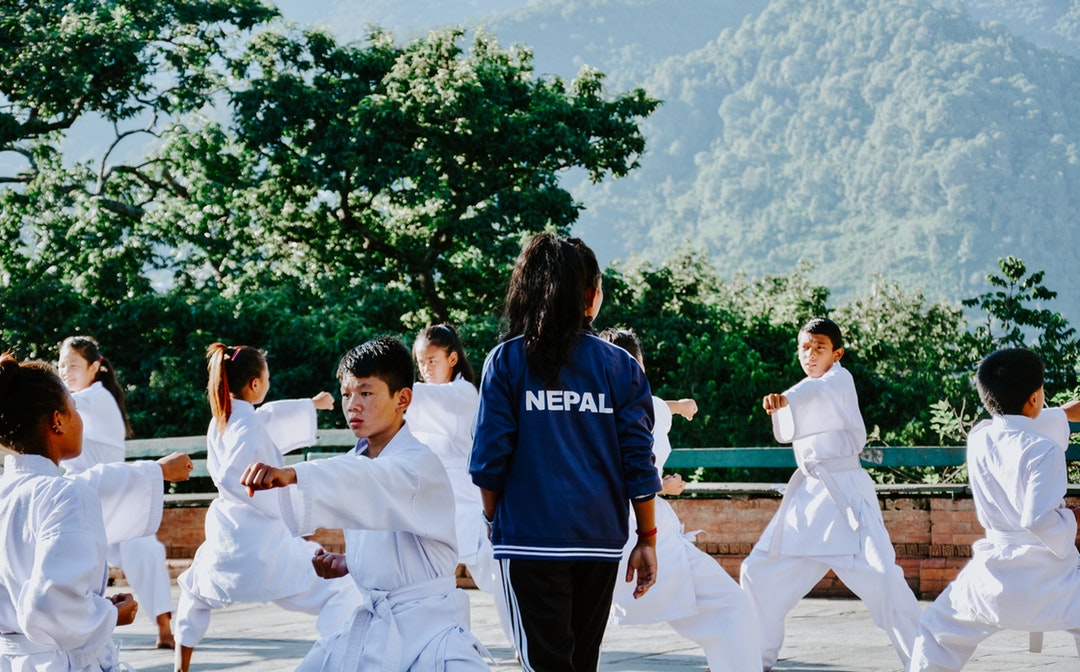
Worthy Moves: 5 Awesome Ways Learning Martial Arts Benefits Kids
If you're considering enrolling your child in a martial arts program, then you're already on the right path. Learning martial arts is beneficial to our children in many ways. And it's a great afterschool class for them to take that keeps them busy until you're off work. Children martial arts classes are an ideal extracurricular activity. But if you're not sure if signing your child up is worth it, then keep reading. We've put a list together of 5 benefits of learning martial arts! 1. Learning Discipline: One of the most crucial benefits of martial arts for children who need more discipline is learning how to be disciplined. And although there is the discipline of instructor vs student that your child will learn, there's an even better type of discipline that is taught. Learning martial arts teaches your child self-discipline. Children will learn how to perfect their technique. And they learn to correct themselves. 2. Learning Self-Defense: It's not a secret that taking martial arts classes like Brazilian Jiu-Jitsu is a great way to learn self-defense. Parents feel comfort in knowing that their child is being taught skills that can be used in the real world. With so many abductions and other child-related abuse stories flooding the internet, it gives parents a peace of mind knowing that their child is being taught ways to defend themselves. 3. Learning Self-Confidence: Martial arts for kids is a good way to teach them self-confidence. As children achieve goal after goal in a martial arts program, they build more self-confidence. At each level completed, rank achieved, and new belt earned, your child will know that they have the ability to set goals and reach them! This will give them much more confidence as they walk down their school's hallway or as they walk down the sidewalk while playing outside. 4. Learning Teamwork & Social Interaction: If your child is not as social as others and doesn't handle social interaction well, then martial arts might be the solution. Many martial arts classes promote healthy social interaction. And all attending children must work with one another to accomplish a productive class. 5. Maintaining Healthy Habits: Martial arts classes promote healthy habits by keeping your child physically fit. It's as much of an exercise as it is a fun time. So your child won't even notice how much exercising is actually being done. And starting good exercising habits at an early age helps them to keep those habits throughout their older years. This keeps their body healthy and physically fit! It's Worth Learning Martial Arts: Learning martial arts is beneficial to the whole family. And your child will not only have fun but will reap all of these benefits while doing so. So, if you enjoyed reading about these 5 benefits of martial arts classes, then you'll really enjoy reading about the benefits your child will receive if they learn coding. Click here to learn more. Read Also: Can Dogs Make The Anti-Social Kids Socialize Better? How To Select The Best Investment Plan For Your Child? 5 Golden Rules Of Children Language Learning Are You Thinking About Buying Quad Bike For Your Kid? Care Free Fun: 5 Fun And Family-Friendly Activities For Children With Special Needs
READ MOREDetails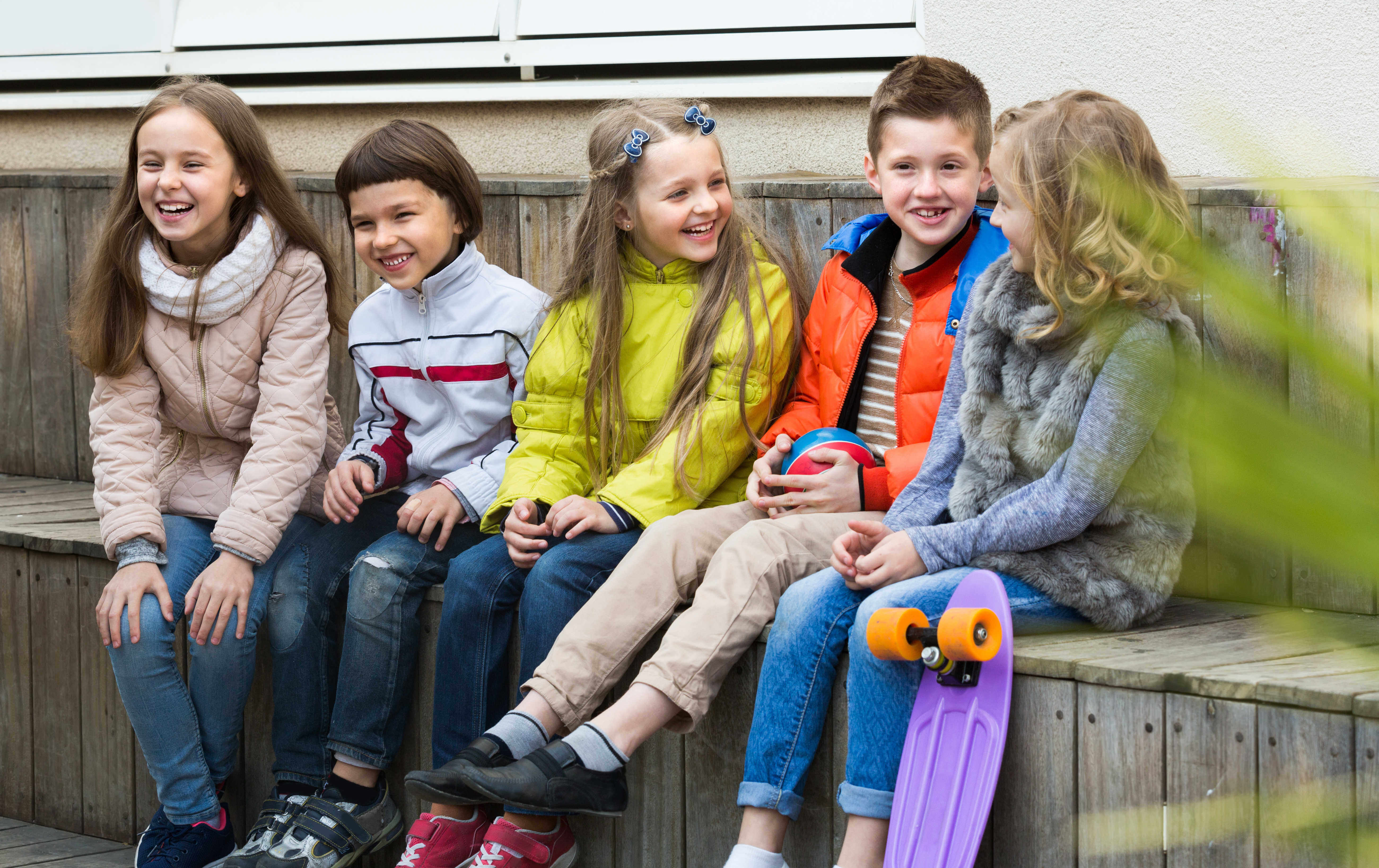
Style Your Child: How to Find Comfy and Cute Clothing for Kids
Dressing your child right can contribute to their comfort, self-confidence, and even their success in school. So, the question is, how well are you dressing your kids to meet their needs? Each kid is different and so their various personalities, needs, and your family's personal priorities will vary. However, there are a few basic ways to choose the right designer clothes for newborns that will arm them to feel and look their best. Choosing the Right Clothing for Kids: Many parents tend to feel that overindulging their kids and dressing them in the latest "trends" is the best way to go. According to research, the opposite may be true. When it comes to picking what your kids wear, three main factors are key: 1. Budget: Let's be honest, even the most adorable Easter outfit is going to fit your little stud or doll for only one season. Kids grow way too fast to consider spending huge amounts of money on designer kid's clothing reasonable. You can maintain a wise clothing budget that accounts for the small amount of time your child will wear those clothes, and still find cute clothes for girls and boys to help them look stylish. One thing that may help is to establish a clothing budget before hitting the racks. How often do your kid's need a wardrobe update? If you have an active child that wears through things often, a slightly higher budget may be appropriate. Regardless of what budget you decide on, having it pre-determined will help you choose cute clothes for your kids, without breaking the bank. 2. Durability: While a proper budget is vital to styling your kids well, the old adage, "buy nice or buy twice," is still important. You can maintain that budget without resorting to getting "cheap" clothes that will just fall apart as soon as they hit the playground. If you're a fan of designer clothing's durability but it doesn't suit your budget, try shopping at an outlet or hitting the season end sales. You can find great quality clothing—designer status—that doesn't cost much. At the end of the day, you don't want your kids coming home with holes in their knees and toes poking through shoes. 3. Comfort and Personality: If your kid's clothing suits their personality, they are going to be comfortable in it. Clothing material and fit are important to comfort (of course), but what style of clothing you choose also adds to how comfortable your little one feels in their own shoes—literally. Don't choose ultra-tight skinny jeans for your daughter if she loves to run and jump on the playground. If your son likes basketball but has a fear of dinosaurs, opt for the "nothing but net," shirt instead of the T-rex. You get the idea. Just like adults, kids are freer to be themselves and enjoy life if they feel good in what they're wearing. Get Your Kid's Style Organized: Now that you're geared up and ready to choose the best clothing for kids that will help them thrive and enjoying being alive in, how about getting their closets ready too? Check out these 10 helpful kid closet organization tips before you hit the mall and start shopping. Happy styling! Read Also: Unique Christmas Gifting Ideas- Gifts For Everyone Are You Thinking About Buying Quad Bike For Your Kid?
READ MOREDetails
Best Locations for Children’s Birthday Parties
It’s a lot of work throwing birthday parties for your kids. As much fun as it is for your children to have all their friends over, it can be a pain to set everything up and clean up messes left behind from the games and food. It’s also very possible that your kids will grow bored with the same venue and the same games each year. You’ll be happy to know that there are plenty of venues in your neighborhood that can serve as the next spot for the occasion. If you know where to look, these spots provide a variety of games and chances to develop their creative skills. Here are the best locations to consider for your child’s next birthday party. Arcades: It can be quite a challenge to keep kids occupied while you’re preparing meals and party games. That won’t be a problem if you take the kids to an arcade, which provide lots of games they’ll have a blast playing. There are racing games, basketball hoops, obstacle courses, and other chances to win tickets that help them buy some toys at the end. While the arcade handles most of the entertainment, you can also book a magician or costumed character from a service like Clown 4 Kids, who can show off neat tricks while the kids take a pizza break. Once these professionals are done with their shows, the kids can get back to their games. Arts and crafts studios: If you want to give your kids a chance to work on their creative skills, then you should look for an arts and crafts studio in town and reserve an afternoon for a birthday party on the weekend. These spots let your kids show off their drawing and painting skills, and take something home that you can proudly hang up on the refrigerator. We advise picking a studio that isn’t too far from your kid’s favorite restaurants. This saves you time and money on traveling, and it gives your kids more time to work on their projects. If you want your kids to have more options for what they can put together, then find a studio that lets them work on vases, plates, and other materials. Bowling: When it comes to keeping the whole party in one place, one of the most reliable venues is the local bowling alley. The kids won’t have to spend much energy compared to playing basketball, baseball, or other sports, and it can become a new hobby for your kids so that they don’t spend their weekends at home too much. These spots also tend to provide lunch if you’re having a party in the afternoon. Some bowling alleys also have other games for kids to participate in, such as batting cages (which are great if your child loves baseball) and arcade games. If your kids are younger, make sure to keep the pumpers up so that they always manage to knock a few pins down. Zoos: If your son or daughter loves animals, then they’ll appreciate you taking them someplace where they can see creatures that they wouldn’t be able to spot in the backyard. Zoos are home to animals from all around the world, including tigers, gorillas, bears, elephants, lions, and rhinos. It’s best to pick a weekend that’s expected to have good weather so that you don’t show up and find that all of the animals are hiding in their shelters (and you’ll be stuck outdoors in the rain, too). These spots also come with educational programs for the kids to participate in, so that they can learn more about the animals. Amusement parks: Some children have an easier time adjusting to the more thrilling activities out there than others. By taking the kids to an amusement park for their birthday, they can experience however much excitement they’d like on their special day. Whether you choose one of the big names like Six Flags or Universal Studios or you to stick with a more local park, the kids won’t be short on options for a fun time. There are always lots of rides for the kids to go on since some of them might be too young or small to go on the roller coasters. The restaurants at the park will also ensure that the kids have a variety of food to choose from, including burgers, pizza, hotdogs, and ice cream. Read Also: Ways To Improve Children’s Parties 6 Delicious Cakes That You Must Try This Winter
READ MOREDetails
Why Baby Formula Should Be A Consideration For All Parents
Choosing whether to breastfeed or use baby formula is a decision all parents need to make. Before you choose one over the other keep in mind that whatever your final decision, both choices are good for your baby’s development. Whether a woman can’t breastfeed or simply decides not to, when making this judgment it is important to know that there is a healthy formula substitute for breast milk with all the nutrients needed for your baby to thrive. More parents are considering using baby formula for its many benefits even when breastfeeding is an option for them. Let’s take a closer look at some of the benefits of using baby formula and why you should consider it as an option. For more details please make sure to visit the most reliable store in the baby food industry themilkybox.com. Emotional Connection: Often, new mums fear that if they don’t breastfeed they won’t bond with their baby. However, bonding will happen even with bottle feeding and it can be strengthened with a few little tricks like having skin to skin contact, looking into baby’s eyes during feeding and singing to the baby. Additionally, feeding time is not the only time mum and the baby bond and there are plenty of opportunities throughout the day such as bath time, putting the baby to sleep and playtime. Diet: Breastfeeding mums need to be more careful about their food intake for however long they decide to breastfeed the baby. On the other hand, when bottle feeding, the mother’s food intake won’t affect the newborn. For instance, mums who are breastfeeding should not have fish high in mercury, they need to watch their caffeine intake and will have to wait for at least 2 hours before they feed the baby if they had even a small amount of alcohol. These and many other restrictions are not applicable to mums who use a formula to feed their child. Pain-Free: When breastfeeding a baby, there is some pain caused by the nipple and areola being pulled into the baby’s mouth. The pain usually lessens after a minute or two, but it can be quite uncomfortable, especially for first-time mums. When bottle-feeding, any pain or discomfort of such kind is avoided. Convenience: Unlike breastfeeding, bottle feeding can be done by both parents. Father helping out with feeding can lessen the burden on the mum who is also recovering from giving birth. Although this is also true for women who express their breast milk, bottle feeding can be more convenient as it doesn’t require mum to schedule her day around breastfeeding or expressing breast milk. Breast milk is digested faster than formula so breastfeeding mums are in higher demand and need to be available for feedings more than formula feeding mums. Medical Conditions And Treatment: Bottle feeding can be the preferred choice in any situation where the mother has a medical condition that can affect the baby, such as HIV/AIDS, and/or needs sedating psychotherapeutic drugs, anti-epileptic drugs, and opioids. Bottle feeding in such a case can be imperative, not only a preferred choice in order to prevent endangering the baby’s health. In addition, there are infant syndromes that require the formula to be used instead of breast milk. Personal Choice: Every mum will have to make a decision - formula or breast milk. Sometimes a decision made before birth might change after the baby comes due to any number of reasons like medical conditions of mum and/or the baby, low milk supply, latch-on pain, etc.. It is important to consider formula as an option due to its many benefits. Keep in mind that with the formula the baby will still receive all the nutrients needed to grow, an emotional connection will still be established and mum can have more freedom with food intake and her availability. Read Also: How To Set Up Your Baby’s Room Baby Shower Party: What To Expect
READ MOREDetails
Kids Will Get These Benefits if They Learn Coding
Coding is not necessarily the first thing you think of when asked what your kids do at school. Coding involves programming language and writing lines of code. You associate these tasks with professionals who want to pursue a career in this industry. However, several educational institutions now introduce coding in the curriculum. It seems like the world has become more dependent on the internet these days, and knowledge of coding is an advantage. Whether kids ultimately become professional programmers or not, they will receive these benefits from learning to code. Creative thinking: Coding involves building computer games and animation movies. Kids not only learn coding language in the process, but they also explore ideas. They become creative. They learn how to tell stories and create characters. They don't limit themselves with rote learning but look at things from different perspectives. Problem-solving skills: Coding involves lots of problem-solving. During the process, children learn how to find the best method to solve a problem. The solutions may or may not work, but they can at least try. They also learn how to work hard until they accomplish their goals, and not give up because they find something too difficult to solve. Teamwork: Coding for kids does not only involve one person. The process requires several minds to think together. They need to communicate with other kids, discuss the best techniques and negotiate. These are skills you usually associate with adults, but it is not too early to introduce them to kids. Presentation skills: Kids don't only work on the code. They also need to present their output. They discuss what they did in the process. Along the way, they learn how to present themselves and feel confident when talking in public. Self-learning: It is not good to keep telling kids what to learn and how to learn. At some point, they need to have the freedom to discover things without assistance, or with minimal supervision. It is one of the benefits kids will receive if they try coding. They will receive the task, and it is up to them how they make the most of what they receive. Build friendships: Kids bond when they share the same interests. Those who love speaking and discussing will most likely hang out in the same place. Those who love math will work together on problems during the break. The same thing can happen with kids who enjoy coding. They will work together and even spend more time with each other outside the class. Boost self-confidence: You can't expect kids to excel in all areas of learning. Some of them might find it difficult to do well in school because they feel like they are not good at anything. With the addition of coding in the curriculum, they might finally find something they feel interested in doing, and it will make them feel confident. Given these benefits, you need to find a school that offers coding as part of the curriculum or enrol your child in a place to learn how to code. Read Also: Online Services To Help Student Can A School Be Legally Responsible For A Student’s Suicide? 5 Strategies For Parents To Help Kids With ADHD Perform Better At School
READ MOREDetails
7 Fun and Simple Outdoor Activities for Your Child Under Ten
Children, particularly under ten years of age, require more attention from their parents. Your child may like to watch TV or play indoor games all day but you have to make it to the outdoors. This is because doing regular outdoor activities keeps your child fit and healthy. Also, it enhances your child’s creativity and thinking ability. It is crucial for optimal physical and cognitive development. Here are seven simple yet fun-filled outdoor activities which your child can perform regularly to play healthily: 1. Draw with Colorful Chalks: Kids find colorful chalks very attractive and like to draw with them whenever they get the chance. So, you can take them outside the home to some muddy area where they could draw with different chalks. It’s a simple yet fun-filled activity which can also make your child more creative. Adding to it, they can learn various new things while drawing freely with chalks. In case you don’t find any nearby muddy area, you can use a mini blackboard for the same purpose. Moreover, doing any activity outdoor increases levels of creativity of your child. Therefore, you must take your child to a nearby park or garden for this purpose. 2. Play With Hula Hoop: Playing with hula hoops in the outdoors is an absolute fun especially for your child who is under ten years of age. On top of that, it’s a playful way to keep your child physically active and hence healthier. You can take your child to a garden or a nearby playground for playing hula hoops. 3. Get an Electric Scooter: Riding an electric scooter is the simplest way to have outdoor fun. It also keeps your child physically active and energetic. Electric scooters are not simply for the young ones but also for the adults. Therefore, you can opt for electric scooter racing with your child to make as much outdoor fun as possible with it. Click here to check out the best electric scooters for your child. 4. Head towards the Beach: Heading towards a beach with your child is a simple idea to have fun. Beach offers so much mud with which your child can play in various ways. For instance, your child can make sand castles or draw anything with fingers on the muddy area. You can also help him build sand castles on the beach. 5. Capture the Nature: Children under ten years of age are always excited to learn new things and explore nature. Just take your child outside, hold him a camera and ask him to take pictures of whatever he sees around. It could be greenery, snow, bridges, transport, roads, people or anything. 6. Gun Painting: Most kids like painting and playing with colors. They would enjoy doing it with a color splashing gun. You can take your child to a certain garden or playland for gun painting. It’s an enjoyable way of keeping your child happy and active. 7. Catch and Throw Water Balloons: Balloons are probably the favorite playable thing for kids. They actually find balloons really attractive and fun-filled objects. Hence, throwing water balloons on one another in an open ground or green area is a hell of a fun for kids. In addition, using colorful water to fill the balloons will make this activity more cheerful. Read Also: Ways To Improve Children’s Parties 7 Important Tips For Planning An Outdoor Event
READ MOREDetailsHow to Train Your Kids for Horseback Riding
Riding a horse is a dream come true for many children but dreaming about it and actually getting on your first pony can be very different things so it’s important to make sure your child is truly ready before they get in the saddle. While horse riding lessons provide many benefits including fitness, strength and improved confidence and focus, children still need to understand the potential dangers and risks associated with handling a large animal. Few Things: There are a few things you can do to help train your kids ready to go on their first horseback riding and the most important is to get them used to the reality of being around real horses and a stable environment. We spoke to the team behind https://www.equisupermarket.co.uk and they shared with us what we can do to help better train kids, you can see some of their ideas below. Look for a riding instructor whose expertise lies with working specifically with children and have them assess your child’s readiness to ride. Every child develops differently at different ages so it’s important to make sure your child is fully ready before they begin. A child riding expert will be able to assess if they have the necessary confidence and common-sense to be able to behave well around horses and handle the potential risks that even the calmest of ponies can create. It can be really helpful to give your children the chance to go and watch other children riding first, so see if you can take your young ones along to a riding school to observe a couple of lessons so they can see exactly what’s involved. Watching a lesson can also be great for parents to really understand the kind of balance, maturity, and co-ordination in which children need to be able to fully participate and enjoy a horse riding lesson safely. Try to find a riding school that offers assessment checks. This is where they will take your child and allow them to ride a small well-behaved horse to assess their skills and abilities and can make an informed judgment about whether or not your child is ready to start formal lessons. The last thing you want is to put your child on a horse in a lesson only to find they are not ready physically or emotionally and end up having a terrifying experience which puts them off for life, instead of the magical experience it should be. When getting involved in horses it’s good for your child to understand there is a lot more to it than just riding lessons as well. They would benefit from spending time in the stables so they can understand what it’s like working around horses. They should experience all the sides of horses such as grooming, tacking up, and cleaning out the stables. That way they can get an all-round appreciation of what’s involved in being around horses regularly. Find out if your chosen stables will let them shadow someone for a couple of hours as they carry out these kinds of routine tasks around the horses so they can learn more about how their favorite animals behave. Loving horses from watching TV shows or having posters on the wall is very different from actually dealing with mucking out stables and handling a large animal in real life so it’s important to know your children are ready to translate their dreams into real life. Children won’t be able to do too much riding to start with because they won’t have the strength but they can still get to know horses and spend time with them through all of the other activities like grooming and mucking out, while they get used to the demands of riding. Important lesson children need to know is how to react around horses and what to look out for. It’s important they understand that horses don’t like quick and sudden movements or loud noises and what the consequences could be of not respecting that. They also need to know how to safely approach a pony without spooking it, and never to approach a horse from behind due to the risk of being kicked. Children need to be educated about the importance of approaching from the side. It’s also really important to teach young children how to interpret a horse’s body language and how to react in certain situations, for example, not to suddenly shout or run and the signs that show a horse is in distress or likely to lash out any minute. Your child should also be fully prepared to wear all of the required protective clothing needed for horse riding, from the right boots up to the riding helmet and should ideally get used to the feel of wearing it all before their first lesson. Horseback riding can be great for children and a really fun hobby but it’s worth getting your youngsters ready and prepared before they jump into the saddle. Read Also: Planning A Family Vacation As The Kids Grow Up Can Dogs Make The Anti-Social Kids Socialize Better?
READ MOREDetails















